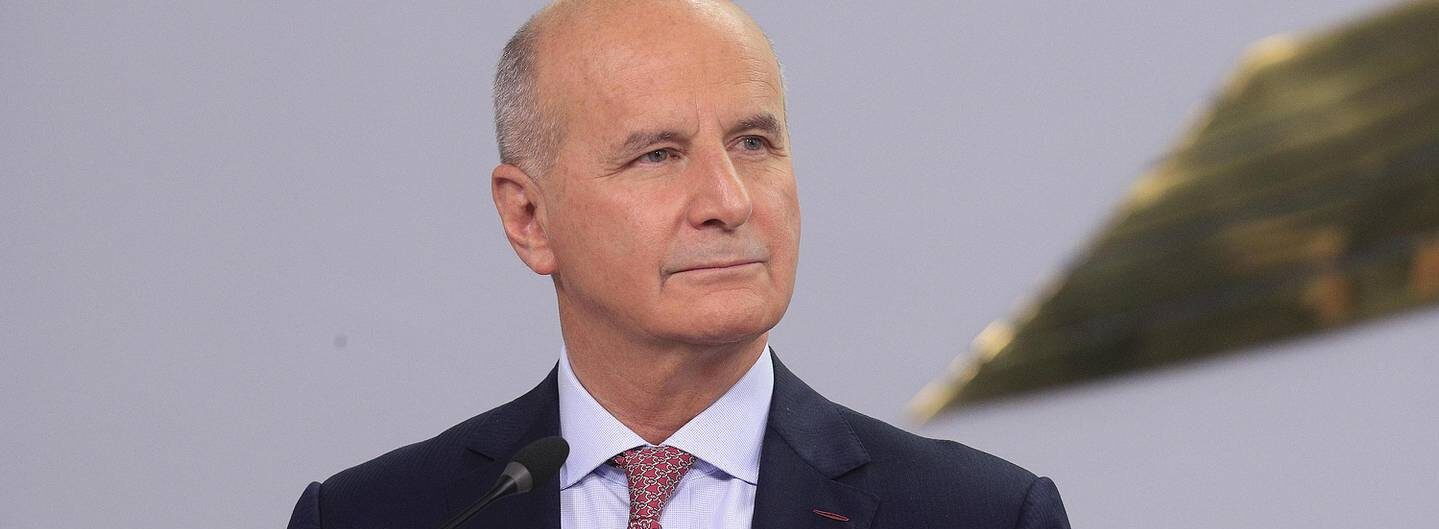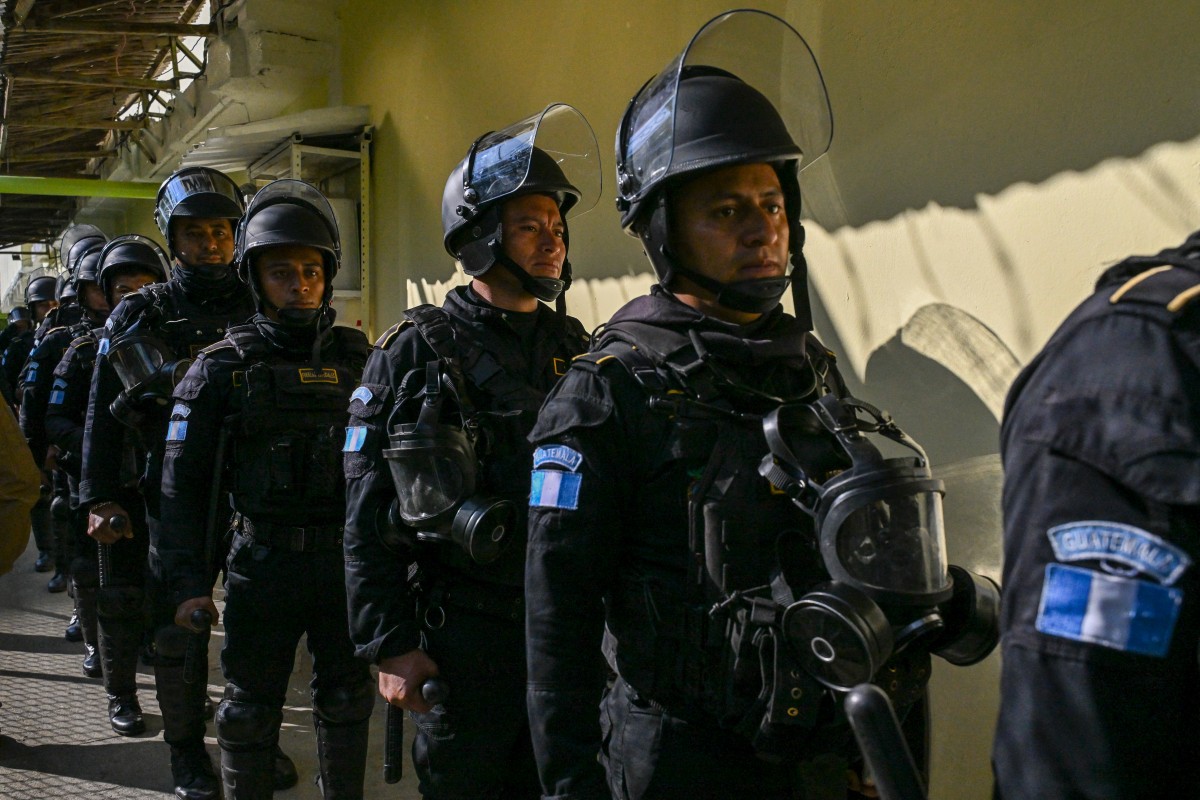Central America
Ex-leader ahead as Costa Ricans elect new president

AFP
Costa Ricans voted for a new president Sunday from a crowded field of candidates, with a center-left former leader ahead of the pack with about 60 percent of ballots counted in one of Latin America’s stablest democracies.
Twelve hours of voting closed at 6 pm (midnight GMT) in what is frequently rated the region’s “happiest” country, a tourist mecca and a leading green economy.
However, polls show unemployment, corruption and creeping living costs topping the concerns of 3.5 million eligible voters in the country of five million people.
Jose Maria Figueres, 67, of the center-left National Liberation Party (PLN), had roughly 27 percent of the vote with 63 percent of ballots counted, the Supreme Electoral Tribunal said.
To win in the first round, one candidate must take 40 percent of the vote — otherwise the two leading contenders will face each other in an April 3 run-off.
The eventual winner will be expected to tackle a worsening economy where unemployment has been steadily rising for more than a decade and reached 14.4 percent in 2021.
The poverty rate stood at 23 percent last year while the public debt was 70 percent of GDP.
Costa Rica’s problems have worsened with the coronavirus pandemic dealing a hard blow to its critical tourism sector.
On Sunday, Figueres, who led the country from 1994 to 1998, condemned the levels of poverty as well as housing shortages.
“We have never experienced these things in this magnitude,” he said.
For Francisco Zeledon, the first voter in line at one polling station, “voting is the most important weapon we have to solve problems.”
“We have to solve poverty and create jobs for people,” the 35-year-old said.
Polls have showed about a third of voters are undecided, faced with a choice of 25 presidential candidates.
But one outcome looked likely: the ruling Citizens’ Action Party (PAC) appeared set for a bruising defeat with anti-government sentiment sky-high.
– Record unpopularity –
“The ruling party is completely weakened and has no chance” after two successive terms in office, said political analyst Eugenia Aguirre.
“The presidential unpopularity figure of 72 percent is the highest since the number was first recorded in 2013,” she added.
This means the country’s traditional political heavyweights — the PLN and the Social Christian Unity Party — could return to the fore after decades of a near political duopoly only recently broken by the PAC.
With results trickling in around 0600 GMT, second place remained closely contested between the economist Rodrigo Chaves (16 percent) and conservative evangelical preacher Fabricio Alvarado Munoz (15 percent).
Munoz commands support from the evangelical community, which makes up about 20 percent of Costa Rica’s population.
Meanwhile, center-right Lineth Saborio of the PUSC garnered 12 percent.
Presidents in Costa Rica cannot seek immediate re-election, leaving incumbent Carlos Alvarado Quesada out of the running.
– Problems ‘worsened’ –
Costa Rica is known for its eco-tourism and green policies, with its energy grid run entirely on renewable sources.
Unlike many of its volatile Central American neighbors, Costa Rica has no army, has had no armed conflicts since 1948 and no dictator since 1919.
But the worsening economic situation has hit confidence in the political class.
Voters under 40 have only known “periods in which not only problems have not been resolved, but they have worsened,” university student Edgardo Soto, an undecided voter, told AFP.
Apathy and abstentionism are features of Costa Rican elections.
In 2018, 34 percent of voters stayed away, though participation is technically obligatory.
Eugenia Zamora, president of Costa Rica’s electoral tribunal, said Sunday’s vote kicked off with high turnout in the morning, and proceeded without incident.
“This is a country with a robust democracy… It offers lessons for other countries,” added Isabel de Saint Malo, head of the Organization of American States observer mission.
Outgoing president Alvarado said the vote was an affirmation of Costa Rica’s place among “the world’s strongest democracies.”
Costa Ricans also cast their vote Sunday for the 57-member Congress.
“I hope that whoever wins really thinks of the people,” said 77-year-old Mayra Sanchez after voting in Moravia, “and not of themselves.”
Central America
Guatemala isolates Barrio 18 leader after attacks that killed 11 police

Guatemalan authorities have placed a leader of the Barrio 18 gang in an isolated cell without الكهرباء or “privileges” after he was accused of triggering a recent wave of violence that left 11 police officers dead, the government said on Sunday.
Members of Barrio 18, which is designated as a “terrorist” organization by both the United States and Guatemala, carried out the killings on January 18 in retaliation for the government’s takeover of three prisons that had been under the control of inmates linked to the group.
In response to the attacks, President Bernardo Arévalo declared a month-long state of siege, arguing that gang members were seeking better conditions in prison or transfers to lower-security facilities.
In a message posted on X alongside photographs, Arévalo announced the isolation of Aldo Dupie, also known as “El Lobo,” one of the gang leaders who allegedly directed the uprisings.
Images released by the government show Dupie inside a small cell with narrow windows, built from metal containers, in a secured area of the Renovación I prison in southern Guatemala — the same facility where the hostage-taking riot took place.
With a shaved head and a stern expression, the gang leader appears alone and in handcuffs, according to the photographs.
Guatemala’s prison system said the “new area,” protected by metal fencing and barbed wire, will house high-risk inmates who will remain without privileges or electricity.
Sports
Shakira ignites El Salvador with near sold-out residency at Mágico González Stadium

The recently renovated Jorge “Mágico” González Stadium is rolling out the red carpet for Colombian superstar Shakira, whose string of concerts has sold out almost entirely, confirming the powerful bond between the artist and Salvadoran fans.
The scale of the experience begins as soon as attendees arrive at the venue. Outside the stadium, organizers have installed several photo spots so concertgoers can capture a souvenir from the major event.
Fans attending the Las Mujeres Ya No Lloran World Tour will witness a top-tier visual production, where technology and robotic lighting effects will shape an atmosphere that shifts dramatically from one segment of the show to another — moving from the intensity of ’90s rock to the festive explosion of urban pop.
Security and crowd management have been top priorities, with a coordinated operation aimed at ensuring smooth entry and exit, allowing spectators to focus solely on enjoying hits that have defined generations.
Beyond the music, the event marks a milestone for the country’s live-entertainment industry, positioning El Salvador as a destination capable of hosting artist residencies once reserved for cities such as Las Vegas or London.
The excitement is already visible across the capital: hotels are at full capacity and local businesses are riding the wave of enthusiasm sparked by the latest songs from the Colombian star.
Central America
Salvadoran fans plan birthday surprise for Shakira at historic show

The president of Shakira’s Fan Club in El Salvador was interviewed by Diario El Salvador on Saturday as she made her way to her entrance gate at Jorge “Mágico” González Stadium, ahead of the historic concert the Colombian superstar is set to perform in the country.
Before the first of the five shows that make up Shakira’s Salvadoran residency, the fan leader revealed that supporters had prepared a special surprise for the singer, who turned 49 on February 2.
“Today I’m here around the stadium with the props we made for her celebration, with postcards and her songs. We also have kits ready to sing ‘happy birthday’ to our She Wolf,” she said.
She explained that the group used social media to ask fans seated in the Ultra Platinum and Platinum sections to find them and pick up birthday pennants, party headbands, balloons and whistles. The idea is to sing “happy birthday” while Shakira introduces her band, offering what they describe as a special Central American welcome.
“For me, she has been a megastar since the first time I saw her in 1996. I saw her again in 2006, here at the stadium. Last year we traveled to Colombia three times to see her, and today I’m beyond excited that she chose El Salvador,” the fan said.
She added that visitors from across Central America and other countries have traveled for the concerts and will also have the opportunity to discover the country. “I’m very excited about everything she makes us feel,” she said.
-

 Central America4 days ago
Central America4 days agoSalvadoran fans plan birthday surprise for Shakira at historic show
-

 Central America3 days ago
Central America3 days agoGuatemala isolates Barrio 18 leader after attacks that killed 11 police
-

 Sports4 days ago
Sports4 days agoShakira ignites El Salvador with near sold-out residency at Mágico González Stadium
-

 International1 day ago
International1 day agoU.S. Health Department says CDC grants no longer match agency priorities
-

 International1 day ago
International1 day agoICE Arrests Reach 379,000 Under Trump, Testimony Shows Amid Minnesota Shootings
-

 International1 day ago
International1 day agoDespite homicide drop, overall deadly violence remains high in Mexico: study
-

 International1 day ago
International1 day agoJet Fuel Crisis Hits Cuba: Flights Disrupted, Air Canada Cancels Services
-

 International1 day ago
International1 day agoSheinbaum Urges Mexico to ‘Jealously’ Guard Sovereignty at Air Force Anniversary
-

 International1 day ago
International1 day agoMEPs Approve Plan That Could Fast-Track Rejection of Some Asylum Claims
-

 International1 day ago
International1 day agoMexico Rises Slightly to 141st in Global Corruption Perceptions Index 2025
-

 International1 day ago
International1 day agoChile Unveils Latam-GPT to Give Latin America Its Own AI Model


























